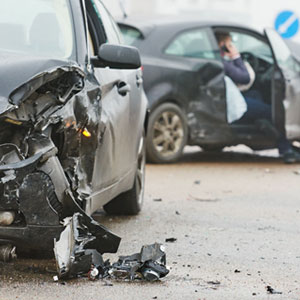What To Do Immediately After a Car Accident in Texas
 The following article will cover:
The following article will cover:
- How to assess your injuries after a car accident in Texas.
- The best way to assist others involved in a car accident without damaging your claims.
- The importance of contacting law enforcement and medical services, especially if you suspect that the other driver was under the influence.
What Steps Should I Take to Protect My Rights and Potential Injury Claim After a Severe Car Accident in Texas?
Car crashes can be highly unsettling. However, it is important to try and remain calm after an automobile or truck accident. A clear head will be instrumental to securing your immediate safety and protecting your potential personal injury claim. Once you’ve gotten your bearings, you can refer to this step-by-step guide as a roadmap of what to do next…
1) Assess Any Personal Injuries
Immediately after the accident, it’s important to check yourself and any passengers in your vehicle. Examine yourself from head to toe, noting any physical discomfort or visible injuries. If you’re not alone in the vehicle, ask your passengers to do the same, encouraging them to inform you of any pain or discomfort they might be experiencing, as well.
2) Assist Others Involved in the Accident
You should always consider the other party involved in the collision. If you can, safely exit your vehicle and check on the occupants of the other vehicle.
3) Contact Law Enforcement and Medical Services
In the event of a serious accident, contact law enforcement by calling 911 immediately. You may also request medical assistance if required. It’s especially crucial to involve law enforcement if you suspect that the other party was driving under the influence.
4) Stay on the Scene and Clear the Roadway
While waiting for law enforcement, make sure to stay at the scene of the accident. It can be a serious offense to leave prematurely. If possible, move the vehicles off the road to prevent further accidents.
5) Exchange Contact Information with the Other Party
Be sure to collect and exchange pertinent information with the other party involved in the accident. This should include insurance details, driver’s license numbers, addresses, and phone numbers. Taking pictures of insurance cards and driver’s licenses is an easy way to gather information.
6) Promptly Report the Accident to Your Insurance Company
You’ll need to reach out to your insurance company promptly after the accident to avoid any deadlines set by your insurance policy that could result in claim denial. If the accident has caused any severe injuries or serious property damage, you may want to consider seeking legal advice before giving a statement to your insurance company.
7) Avoid Discussions of Fault
Refrain from discussing the accident with the other party, beyond exchanging necessary information. Even if you believe you may be at fault, it’s critical that you do not apologize or admit fault in any way, as the actual legal liability might be different from your perception.
8) Document the Accident Scene
If you can, capture photographs or videos of the accident scene, the vehicles involved, and any visible injuries. This documentation can prove invaluable in supporting personal injury claims and demonstrating the seriousness of the accident.
Remember, in such distressing situations, it’s essential to stay composed and consider what steps you need to take to stay safe and secure any potential personal injury claims – and if you need help along the way, don’t hesitate to contact an attorney who can help guide you through the process.
For more information on What to Do After a Car Accident in Texas, an initial consultation is your next best step. Get the information and legal answers you are seeking by calling (432) 653-1899 today.
For more information on personal injury law, please click here.
Click to Submit
Your Case
Get In Touch
Injury and Death Home
Trucking & Industrial Accidents
Traumatic Brain Injuries
Oilfield & Industrial Accidents
Aviation Accidents
